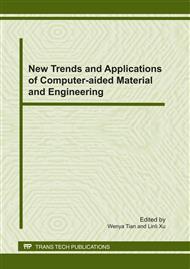p.525
p.531
p.536
p.541
p.546
p.552
p.556
p.560
p.565
Flexible Job Shop Scheduling Multi-Objective Optimization Based on Improved Strength Pareto Evolutionary Algorithm
Abstract:
Scheduling for the flexible job shop is very important in fields of production management. To solve the multi–objective optimization in flexible job shop scheduling problem (FJSP), the FJSP multi-objective optimization model is constructed. The cost, quality and time are taken as the optimization objectives. An improved strength Pareto evolutionary algorithm (SPEA2+) is put forward to optimize the multi-objective optimization model parallelly. The algorithm uses a new model of a Multi-objective genetic algorithm that includes more effective crossover and could obtain diverse solutions in the objective and variable spaces to archive the Pareto optimal sets for FJSP multi-objective optimization. Then an approach based on fuzzy set theory was developed to extract one of the Pareto-optimal solutions as the best compromise one. The optimization results were compared with those obtained by NSGA-II and POS. At last, an instance of flexible job shop scheduling problem in automotive industry is given to illustrate that the proposed method can solve the multi-objective FJSP effectively.
Info:
Periodical:
Pages:
546-551
DOI:
Citation:
Online since:
January 2011
Authors:
Price:
Сopyright:
© 2011 Trans Tech Publications Ltd. All Rights Reserved
Share:
Citation:


